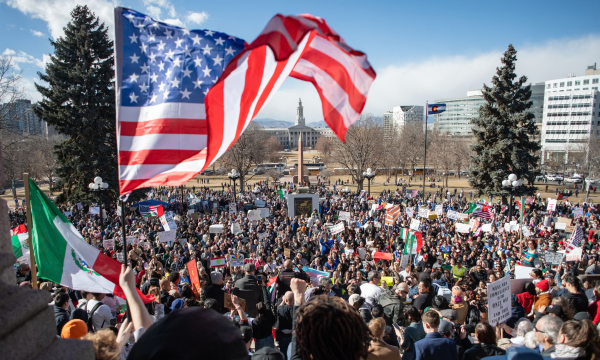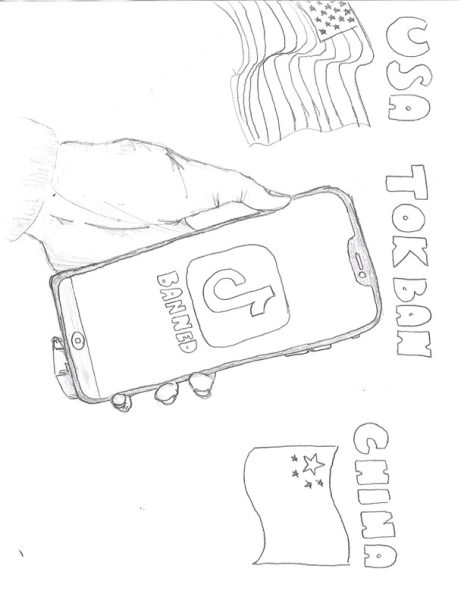Colorado’s calculated plastic bag tax
Colorado shoppers must pay a 10-cent tax for every plastic and paper bag used from a store

A law has been passed in Colorado that puts a 10-cent tax on plastic bags from stores. The idea behind the tax is that fewer people will use plastic bags resulting in less of them in the environment. It will force Colorado shoppers to use reusable bags rather than disposable ones, which tend to have negative effects on the environment. This law was signed and passed by Gov. Jared Polis and went into action on the first of January 2023.
This 10-cent fee may not seem like much, but in the end, it adds up for individuals and stores. The tax money doesn’t just disappear, rather it is used in ways that seem like they will potentially be beneficial. According to the article “Where does your 10 cents from Colorado bag fee go?”, “that 60% portion of the fee revenue can be used by the municipality or county to pay for administrative and enforcement costs and any recycling, composting, or other waste diversion programs or related outreach or education activities. The other 40% of the fee revenue will be kept by the store.”
If a store or business chooses not to charge the tax fee for plastic bags, it can be charged a $500 fine for a first offense, or a $1,000 fine, for a second offense. Stores get 40% of the bag tax revenue that goes back to the store, so they should want to tax the bags.
Some people see the tax on plastic bags as a positive thing concerning the environment. Math teacher Kayla Cain said, “I think it’s good because of the big picture and purpose of it but I can also understand that it’s probably really frustrating for people who aren’t used to using reusable bags.” Unlike most people, the transition for Cain wasn’t tough to go from plastic to reusable. Cain said, “I have practiced using reusable bags for a long time so I’ve had time to adjust to this but it took probably a couple of years of practice to remember to bring them every time.” Taxing non-reusable bags does make it less desirable for people to use plastic bags, but it may not be the best solution to the problem. Cain also said, “I don’t necessarily know if making them taxed is entirely, but I think making them less accessible would send the same message that you can’t go Walmart and get plastic bags.”
Mrs. Texie Jonsson who is not overly excited about the tax on bags said, “I think the tax will help clean up the environment to an extent, but it won’t eliminate it because you can still buy other plastic bags and items that will have negative effects on the environment.” Adjusting is tough for those who normally use plastic bags at stores, and it will take time to get used to it. Jonsson said, “I always forget my bags. I will get to the store and buy plastic bags which just take money out of my pocket. It is a hard transition.”
The tax on plastic bags in stores has been an idea for a long time, but has only just recently been implemented. There are both positives and negatives to this and the people within society are having to make changes that take time. Either way, that tax on plastic bags is a reality now and it’s only meant to benefit the environment.








